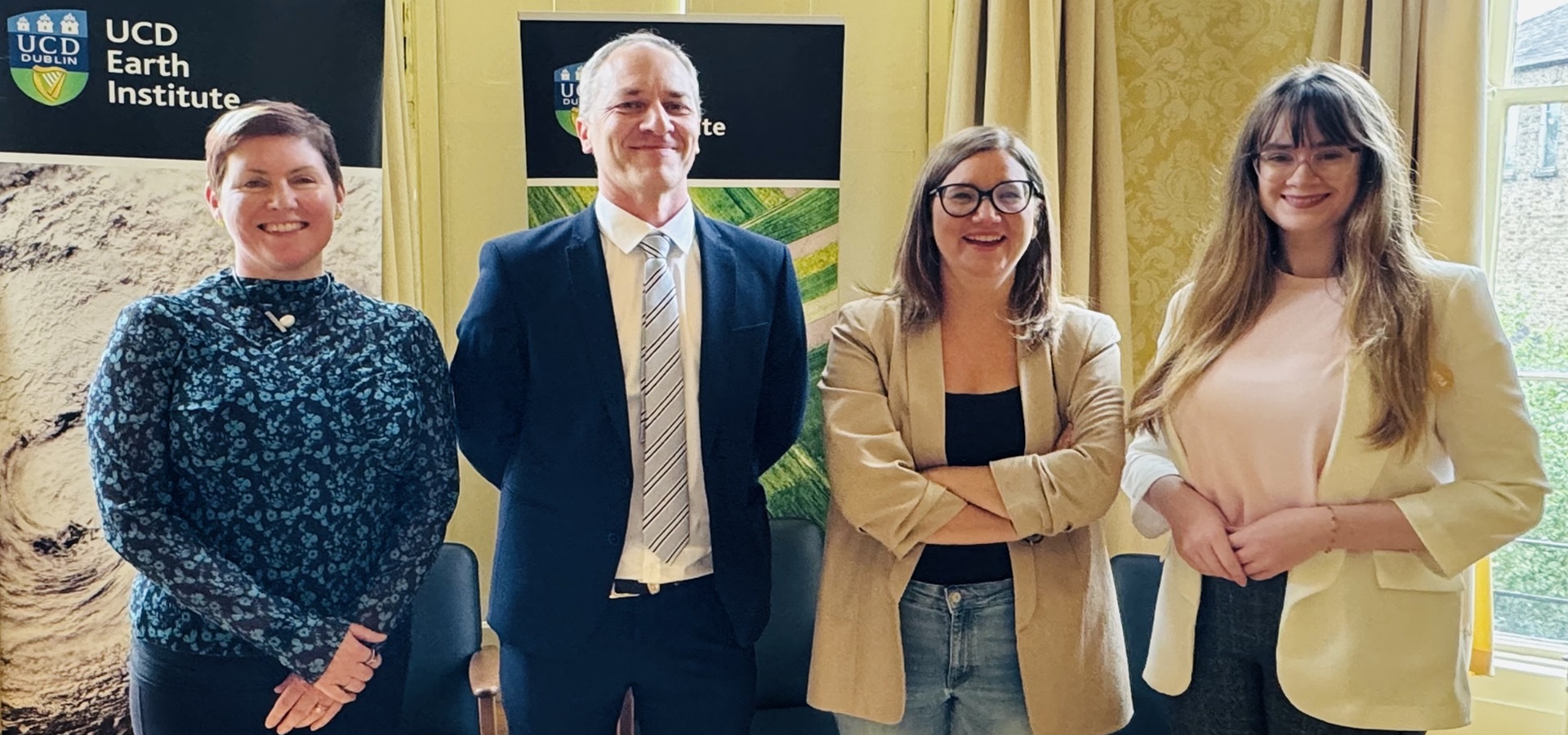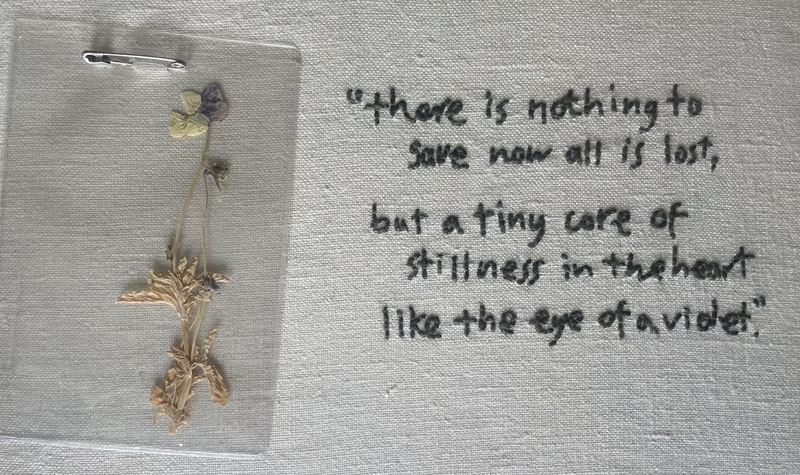New Institute Members June 2024
In June 2024, the Earth Institute welcomed six new Institute members: Ronan McDermott, Karen Smith, Fabiola Schneider, Ekin Ozer, Chiara Cocco, and Gabriela Martinez Sainz.
Dr Rónán McDermott (School of Agriculture and Food Science) is based at the Centre for Humanitarian Action within UCD School of Agriculture and Food Science. His research, teaching and broader engagement centres on understanding and influencing the institutional and legal drivers of societal resilience within fragile contexts as well as institutional determinants of societal resilience in the face of natural hazards. Building societal resilience is a central mission of contemporary humanitarian action and supports the sustainability of agriculture and rural development in the face of shocks and stressors. His work contributes to the achievement of Sustainable Development Goals 11 (sustainable cities and communities), 13 (climate action) and 16 (peace, justice and strong institutions).
Dr Karen Smith (School of Social Policy, Social Work and Social Justice) is an Assistant Professor in equality studies and social justice with research interests centring on children and childhood, with a particular focus on childhood inequality and child policy. Her work to date has contributed theoretically to the literature on the government of childhood and empirically to the analysis of child policy and policy and provision for children and families of international protection background. She has long had an interest in environmental issues and her research and scholarship plans for the medium term include a strong focus on intergenerational relations and the future of childhood in the context of environmental and climate crisis, informed by posthumanist, new materialist and social justice perspectives.
Dr Fabiola Schneider (School of Business)'s career and research are dedicated to driving the transition of our economy, using finance and accounting as a lever. Her main focus is on tackling the climate emergency, yet recognising the manifold crises we are facing and the interconnectedness of systems she branches out into other areas such as water and biodiversity. A further passion of hers is EDI and ensuring that this transition does not further exacerbate existing inequalities. Part of her work revolves around (European) financial policy, where creating transparency through corporate reporting is seen as a first step to drive change. Leveraging private markets and capital flows could serve as an accelerator for changing the economy and reliable data is a crucial enabler for this endeavour. Relatedly, her research looks into greenwashing.
Dr Ekin Ozer (School of Civil Engineering)'s research research related to structural health monitoring and condition assessment is aligned with SDGs including the betterment of infrastructure management and extended lifetime of structures by accurate evaluation of their conditions. The scientific approaches he pursues can reduce infrastructure-induced carbon and material (and financial) costs with no compromise in safety. The indirect reasons are related to the systemic behaviour of infrastructure systems and reducing their vulnerability by accurate evaluation of network nodes, e.g., bridge infrastructures. These frontiers result in more efficient and resilient transportation through smart decision-making mechanisms.
Dr Chiara Cocco (School of Architecture, Planning and Environmental Policy) has extensive research experience collaborating with local authorities, citizens, and communities in planning, design, and climate adaptation processes. She is directly involved as a WP/Task leader in two H2020 projects (SCORE and NBSInfra) and a New European Bauhaus project (Heritact). She successfully secured funding under the SFI National Challenge Fund programme and is the principal supervisor for two PhD students. The first is engaged in a citizen science project focused on data fusion techniques, while the second is dedicated to developing methodologies and tools for citizen participation in designing nature-based solutions. Her research vision lays at the intersection of spatial planning, sustainable communities and architecture, and heritage reactivation fields.
Dr Gabriela Martinez Sainz (School of Education)'s research explores the challenges and opportunities of teaching for sustainable futures, particularly the implications for children's rights and their wellbeing. She is currently working in projects addressing children's participation in decision-making processed related to climate change and sustainability, and developing models to connect sustainability and wellbeing through educational experiences.

